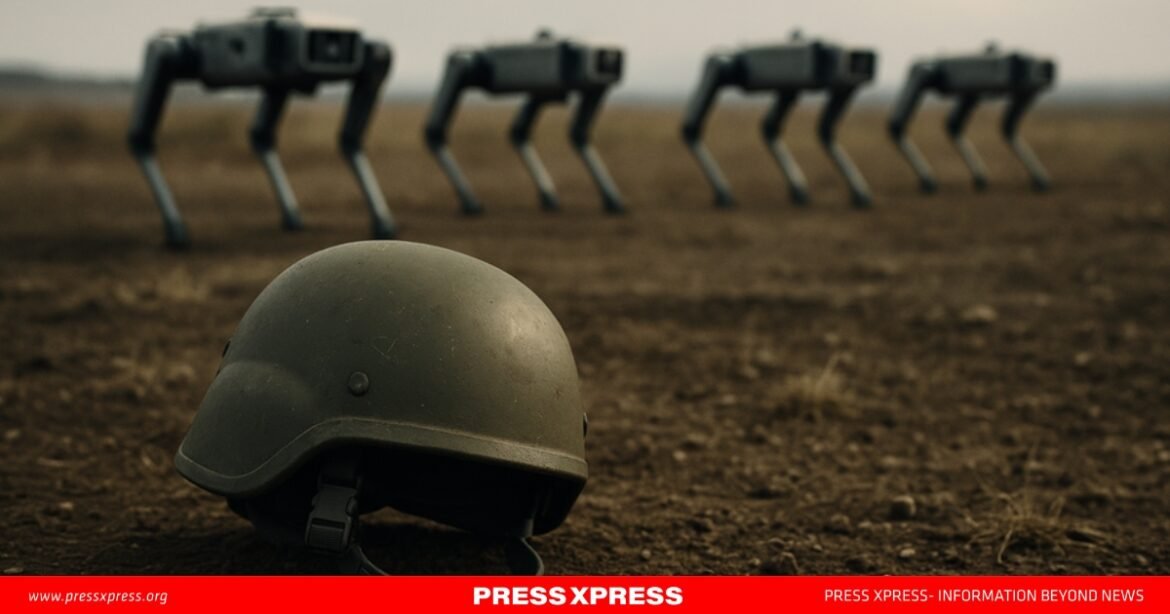The increasing use of artificial intelligence (AI) in warfare is raising alarms at the United Nations, with experts warning that the rise of autonomous weapons is making conflicts deadlier and lowering the threshold for engaging in war.
Amandeep Singh Gill, the UN Secretary-General’s Envoy on Technology, highlighted the troubling trend at POLITICO’s AI and Tech Summit in Brussels. He stated that the distance between human decision-makers and the act of taking life on the battlefield is making some countries more willing to engage in conflict, with fewer reservations about the consequences.
“Putting distance between humans and the taking of life makes the decision to go to war easier,” Gill said. “We’re seeing this already in several ongoing conflicts.”
AI-Driven Warfare in Ukraine and Gaza
The war in Ukraine is a prime example of how AI is reshaping modern combat. According to the Royal United Services Institute (RUSI), by 2024, approximately 60% of aerial attacks in Ukraine involved autonomous or semi-autonomous drones. These drones, capable of performing surveillance and striking targets with minimal human intervention, have become a critical component in both offensive and defensive strategies.
In Gaza, Israel’s use of AI for target selection has raised significant concerns. Amnesty International reported that 40% of airstrikes during Israel’s recent offensives were based on AI-generated targeting systems, leading to accusations of insufficient human oversight. This has resulted in a higher number of civilian casualties in densely populated areas, as AI algorithms were used to prioritize military targets with limited human review.
These cases illustrate the growing reliance on AI in selecting and executing military strikes, with a significant portion of operations now being carried out with little or no direct human involvement.
Lowering the Threshold for War
The shift toward autonomous systems in combat is also making it easier for nations to resort to violence. By removing the immediate threat to human soldiers, AI is enabling military decisions to be made more quickly and with fewer concerns about the risks of escalation. This, Gill argues, is lowering the threshold for entering into conflict.
A 2023 SIPRI report found that the use of AI in military decision-making accelerated the deployment of force in 20% of cases, with military leaders opting for rapid escalation before exhausting diplomatic options.
“The threshold for initiating conflict is becoming lower,” Gill warned.
Without the immediate human cost, military powers are more inclined to engage in aggressive actions, potentially increasing the frequency and severity of wars.
Calls for Global Regulation
The UN is pushing for an international treaty to regulate the use of autonomous weapons, with the aim of ensuring that humans maintain control over life-and-death decisions in warfare. Secretary-General António Guterres emphasized the need for a global framework to govern the use of AI in military operations.
“We cannot delegate life-or-death decisions to machines,” Guterres said. “Human control over the use of force is essential.”
The UN’s proposed regulation, slated for completion by 2025 and adoption by 2026, calls for clear oversight mechanisms, including requiring meaningful human input in all lethal decisions made by autonomous systems. The goal is to avoid situations where AI systems operate without accountability, particularly when civilian lives are at stake.
Over 70 countries have shown support for this effort, but major military powers like the United States, China, and Russia remain reluctant to commit to binding regulations, as they continue to advance their own AI-driven weapons programs.

The Path Forward
The use of AI in warfare is evolving rapidly, and experts are warning that without immediate action, the global community may face catastrophic consequences. While technological advancements are outpacing diplomatic discussions, the need for regulation is more urgent than ever.
“It’s not just about replacing soldiers with machines,” Gill concluded. “It’s about machines reshaping the very nature of war and the ethics that should govern it.”
With AI playing an increasingly central role in conflicts worldwide, it remains to be seen whether global leaders can strike a balance between military innovation and the protection of human life.


